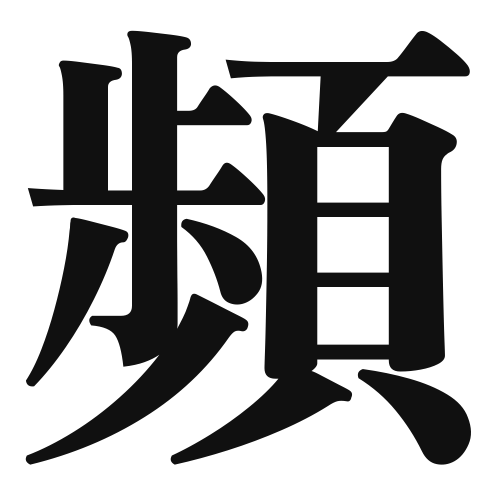1. Overview of Meaning
The kanji 頻 (pronounced “hin”) means “frequent” or “repeated.” It conveys the idea of something occurring often or at short intervals.
2. Formation and Radical
Formation of the Kanji: The kanji 頻 is a phonetic-ideographic character (形声文字). It combines the radical for “time” (時) with a phonetic component that suggests its pronunciation.
Radical: The radical for 頻 is 雨 (meaning “rain”), which is often associated with the idea of something that happens repeatedly, like rain falling frequently.
3. Examples of Usage
Common Words and Phrases: Some frequently used words that include 頻 are:
- 頻繁 (hinpan) – frequent, often
- 頻度 (hindō) – frequency
Example Sentences in Daily Conversation:
- このイベントは毎年頻繁に行われます。
(This event is held frequently every year.) - 彼は頻度高く旅行に行きます。
(He travels frequently.)
4. Synonyms and Antonyms
Similar Kanji: A similar kanji is 常 (jou), which means “usual” or “normal.” While both imply regularity, 頻 emphasizes the frequency of occurrence, whereas 常 suggests a state of being that is typical or constant.
Opposite Kanji: The antonym of 頻 is 稀 (ki), which means “rare” or “infrequent.” This kanji indicates something that does not happen often.
5. Cultural and Historical Background
Relation to Japanese Culture: The concept of frequency is significant in Japanese culture, especially in relation to traditions and festivals that occur regularly. The idea of “frequent” events is often tied to the rhythm of life in Japan.
Proverbs and Idioms: One common saying is 頻繁に行うことは習慣になる (Hinpan ni okonau koto wa shūkan ni naru), which translates to “Doing something frequently becomes a habit.” This reflects the cultural understanding of how repeated actions shape behavior.
